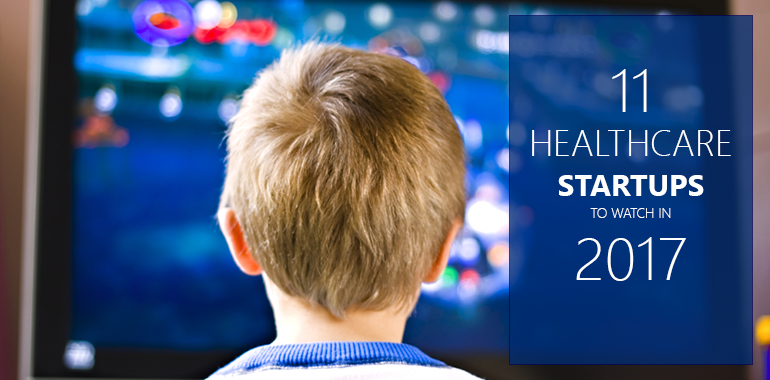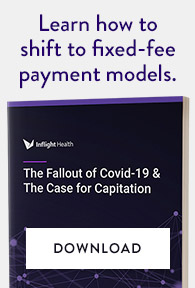From personalized patient treatment to virtual care platforms, prescriptive analytics to health interoperability, the health IT landscape is rapidly changing. There’s an impressive influx of startups driven by entrepreneurial innovation beginning to make their way into the field, showing off new ways to change the way we understand, and use healthcare.
The more technology evolves, the more likely it is we will begin to see successful solutions to typical healthcare problems. Right now, it’s safe to say that consumer-driven healthcare is becoming increasingly essential within the modern climate, and the companies we’re going to cover below are just some of the parts in the vast puzzle to health evolution.
 |
During 2016, WellTok received $33.7 million in funding towards their new “CafeWell Health Optimization Platform”. The program aims to connect healthcare providers and the public on a deeper and more instantaneous level by allowing health managers to inspire and coach their clients remotely. Not only does the platform develop individual plans for each person depending on their health needs and goals, but it also connects them with resources and rewards that will help them to achieve a healthier lifestyle. |
 |
Cernostics assists the process of Oncology diagnostics and recently received a further $5 million in funding from UPMC Enterprises. The money is being put towards accelerating the development of new diagnostic tests for people who suffer from “Barrett’s Esophagus”, which can lead to cancer.
The idea behind the Cernostics team, is to create digital insights into biopsy procedures that allow for deeper, and more accurate examinations of tissues and features. In fact, the Cernostics software allows for the measurement of over 13,000 different features within a patient sample – which can help to inform individualized processes for diagnosis and therapeutic response. |
 |
This startup is responsible for producing real-time analytics technology for the IoT (Internet of Things), and it recently earned $4.5 million in its first funding attempt. By developing a platform known as “COVALENCE” analytics, BCA is hoping to simplify population health using end-to-end solutions of hardware and software.
The data contained within the BCA network will be useful for everything from pharmaceutical trials, to health and life insurance analysis, and more. |
 |
Recently, UPMC enterprises purchased the entire of Millennium Health’s Interests in RxAnte – a company for clinical technology. RxAnte currently manages the use of medication for almost seven million patients on behalf of health providers, insurers, and other stakeholders across the country who are working to improve effective and safe prescription use.
Following recent investment, RxAnte plan to extend their predictive models and tools for workflow to assist with the management of high-cost and specialty medication within the field. |
 |
CognitiveScale recently received a $21.8 million round of funding to help advance industry-specific software for machine intelligence. The aim of the company is to deliver a practical, and scalable form of AI technology into the healthcare industry. Their technology will analyze huge portions of data, and learn from customer interactions and information in order to deliver advice and targeted insights into how to improve healthcare performance.
Since 2014, this company has already deployed products within Fortune 100 companies across healthcare, financial services, and commerce. |
 |
An on-demand healthcare concierge provider for health plans, employers, and healthcare systems, Accolade recently received a $71.1 million boost to its technology platform. The new model will combine clinical support and customer engagement solutions with personalized services to maximize healthcare outcomes across the industry.
Accolade are producing deep datasets that include personal insights taken from relationships between health assistances and families. As such, the approach that Accolade analytical tools, mobile offerings, and clinical models present is a more data-centric consideration of a whole person, rather than a single condition or illness. |
 |
An upstart in the world of data science, Apixio recently announced that it had raised $19.3 million in a new investment development. The latest venture capital for the company will be used to build upon Apixio’s existing cognitive computing platform.
Alongside artificial intelligence and machine learning, cognitive computing is now having a larger impact on the healthcare industry. In fact, it’s been predicted that by 2018, nearly a third of healthcare systems will be running cognitive analyses in order to extract real-world patient information to inform personalized treatment. Apixio’s platform known as “HCC Profiler” looks through unstructured healthcare data to find insights and trends in certain chronic conditions in order to help clinicians offer better care. |
 |
KenSci’s Product is built on Microsoft’s Cloud and Data Platform and integrates with EMR, Claims , public socio/economic data sources and patient generated digital health data. KenSci’s platform includes a machine learning ready healthcare data catalog and over 190 ML models, trained over 50M+ data sets. Through Machine Learning, KenSci is helping healthcare industry a chance to predict risk across chronic care management, quality measures and cost outliers. |
 |
Kno2™ optimizes patient document exchange for everyone in healthcare. The company’s cloud-based platform improves the healthcare experience for providers and their patients by making sharing documents easy, affordable and secure. Even healthcare providers with limited resources can participate in the simple, structured exchange of patient documents—without changing their workflow or technology infrastructure. The Kno2 platform captures and exchanges documents from virtually any source ranging from a fax machine to an EMR. The innovative platform is smart enough to determine the most interoperable format and method of exchange for a document. All of this functionality is available through a simple set of APIs or through Kno2’s provider portal. |
 |
CircleMedical identify themselves as a “concierge” for healthcare. Recently, they received a boost of around $2.9 million in funding to help them increase awareness of their company. The solution was conceived after one of the cofounders suffered from an illness during a family vacation, and the father was unable to get care from a network physician. As such, Circle Medical offers patients a physician for non-urgent care, instead of sending them to emergency services.
Circle Medical offers patients everything they might expect from a typical physician, including flu shots, checkups, bloodwork, and more. Each healthcare professional can visit you wherever you are. |
 |
Named the 2016 Digital Healthcare Innovator of the Year by Healthegy, Health Catalyst has been regarded by many as the company that is most responsible for changing the face of the industry. After discovering that the traditional approaches to data modeling simply weren’t effective at responding to the huge influx of information within the healthcare industry of late, Health Catalyst created an “Adaptive Data Architecture”, which is both flexible, agile, and capable of being implemented within weeks.
The system helps to ensure that healthcare providers can spot trends in illness and disease among the population, so that they can implement organizational and process changes within their practices instantly – improving healthcare en masse. |



